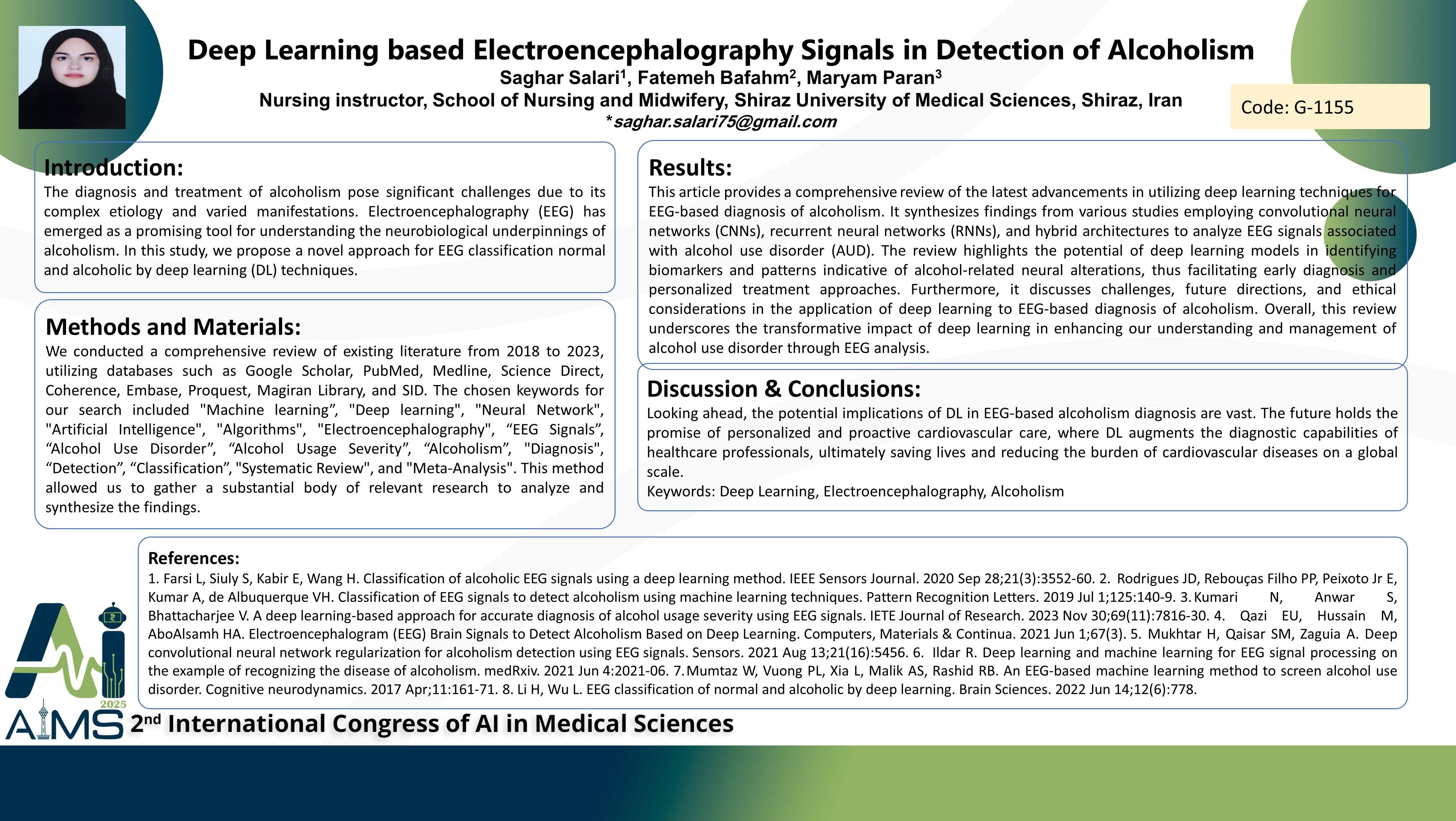Deep Learning based Electroencephalography Signals in Detection of Alcoholism
Code: G-1155
Authors: Saghar Salari * ℗, Fatemeh Bafahm, Maryam Paran
Schedule: Not Scheduled!
Tag: Clinical Decision Support System
Download: Download Poster
Abstract:
Abstract
Background: The diagnosis and treatment of alcoholism pose significant challenges due to its complex etiology and varied manifestations. Electroencephalography (EEG) has emerged as a promising tool for understanding the neurobiological underpinnings of alcoholism. In this study, we propose a novel approach for EEG classification normal and alcoholic by deep learning (DL) techniques. Methods: We conducted a comprehensive review of existing literature from 2018 to 2023, utilizing databases such as Google Scholar, PubMed, Medline, Science Direct, Coherence, Embase, Proquest, Magiran Library, and SID. The chosen keywords for our search included "Machine learning”, "Deep learning", "Neural Network", "Artificial Intelligence", "Algorithms", "Electroencephalography", “EEG Signals”, “Alcohol Use Disorder”, “Alcohol Usage Severity”, “Alcoholism”, "Diagnosis", “Detection”, “Classification”, "Systematic Review", and "Meta-Analysis". This method allowed us to gather a substantial body of relevant research to analyze and synthesize the findings. Results: This article provides a comprehensive review of the latest advancements in utilizing deep learning techniques for EEG-based diagnosis of alcoholism. It synthesizes findings from various studies employing convolutional neural networks (CNNs), recurrent neural networks (RNNs), and hybrid architectures to analyze EEG signals associated with alcohol use disorder (AUD). The review highlights the potential of deep learning models in identifying biomarkers and patterns indicative of alcohol-related neural alterations, thus facilitating early diagnosis and personalized treatment approaches. Furthermore, it discusses challenges, future directions, and ethical considerations in the application of deep learning to EEG-based diagnosis of alcoholism. Overall, this review underscores the transformative impact of deep learning in enhancing our understanding and management of alcohol use disorder through EEG analysis. Conclusion: Looking ahead, the potential implications of DL in EEG-based alcoholism diagnosis are vast. The future holds the promise of personalized and proactive cardiovascular care, where DL augments the diagnostic capabilities of healthcare professionals, ultimately saving lives and reducing the burden of cardiovascular diseases on a global scale.
Keywords
Deep Learning, Electroencephalography, Alcoholism
